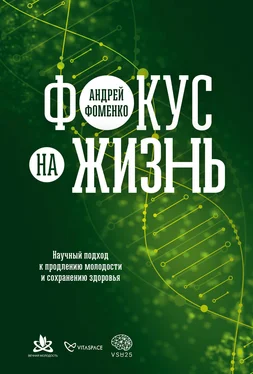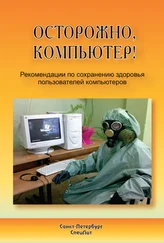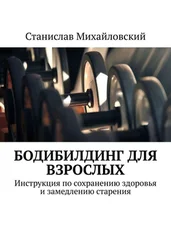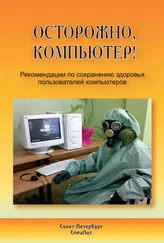2. Jacobs T. L., Epel E. S., Lin J., et al. Intensive meditation training, immune cell telomerase activity, and psychological mediators. Psychoneuroendocrinology. 2011;36(5):664–681. doi: 10.1016/j.psyneuen.2010.09.010.
3. Lavretsky H., Epel E. S., Siddarth P., et al. A pilot study of yogic meditation for family dementia caregivers with depressive symptoms: effects on mental health, cognition, and telomerase activity. Int J Geriatr Psychiatry. 2013;28(1):57–65. doi: 10.1002/gps.3790.
4. Lazar S. W., Kerr C. E., Wasserman R. H., et al. Meditation experience is associated with increased cortical thickness. Neuroreport. 2005;16(17):1893–1897. doi: 10.1097/01.wnr.0000186598.66243.19.
5. Valk S. L., Bernhardt B. C., Trautwein F. M., et al. Structural plasticity of the social brain: Differential change after socio-affective and cognitive mental training. Sci Adv. 2017;3(10): e1700489. Published 2017 Oct 4. doi: 10.1126/sciadv.1700489.
6. Данилова Н. Н., Ханкевич А. А. Гамма-ритм в условиях различения временных интервалов. Вестник Московского университета. Серия 14. Психология. 2001. № 1. С. 51.
7. Lutz A., Greischar L. L., Rawlings N. B., Ricard M., Davidson R. J. Long-term meditators self-induce high-amplitude gamma synchrony during mental practice. Proc Natl Acad Sci U S A. 2004;101(46):16369–16373. doi: 10.1073/pnas.0407401101.
8. Goyal M., Singh S., Sibinga E. M., et al. Meditation programs for psychological stress and well-being: a systematic review and meta-analysis. JAMA Intern Med. 2014;174(3):357–368. doi: 10.1001/jamainternmed.2013.13018.
9. Keefer L., Blanchard E. B. A one year follow-up of relaxation response meditation as a treatment for irritable bowel syndrome. Behav Res Ther. 2002;40(5):541–546. doi: 10.1016/s0005–7967(01)00065–1.
10. Lang A. J., Strauss J. L., Bomyea J., et al. The theoretical and empirical basis for meditation as an intervention for PTSD. Behav Modif. 2012;36(6):759–786. doi: 10.1177/0145445512441200.
11. Kozasa E. H., Tanaka L. H., Monson C., Little S., Leao F. C., Peres M. P. The effects of meditation-based interventions on the treatment of fibromyalgia. Curr Pain Headache Rep. 2012;16(5):383–387. doi: 10.1007/s11916–012–0285–8.
12. Loucks E. B., Nardi W. R., Gutman R., Kronish I. M., Saadeh F. B., Li Y., et al. (2019) Mindfulness-Based Blood Pressure Reduction (MB-BP): Stage 1 single-arm clinical trial. PLoS ONE14(11): e0223095. doi: 10.1371/journal.pone.0223095.
13. Krittanawong C., Kumar A., Wang Z., Narasimhan B., Jneid H., Virani S. S., Levine G. N. Meditation and Cardiovascular Health in the US. The American Journal of Cardiology. 2020. ScienceDirect. https://www.sciencedirect.com/science/article/abs/pii/S0002914920306202.
14. Zeidan F., Martucci K. T., Kraft R. A., Gordon N. S., McHaffie J. G., Coghill R. C. Brain mechanisms supporting the modulation of pain by mindfulness meditation. J Neurosci. 2011;31(14):5540–5548. doi: 10.1523/JNEUROSCI.5791–10.2011.
15. Martires J., Zeidler M. The value of mindfulness meditation in the treatment of insomnia. Curr Opin Pulm Med. 2015;21(6):547–552. doi: 10.1097/MCP.0000000000000207.
16. Tang Y. Y., Leve L. D. A translational neuroscience perspective on mindfulness meditation as a prevention strategy. Transl Behav Med. 2016;6(1):63–72. doi: 10.1007/s13142–015–0360-x.
17. Gallant S. N. Mindfulness meditation practice and executive functioning: Breaking down the benefit. Conscious Cogn. 2016;40:116–130. doi: 10.1016/j.concog.2016.01.005.
18. Zgierska A., Rabago D., Zuelsdorff M., Coe C., Miller M., Fleming M. Mindfulness meditation for alcohol relapse prevention: a feasibility pilot study. J Addict Med. 2008;2(3):165–173. doi: 10.1097/ADM.0b013e31816f8546.
19. Katterman S. N., Kleinman B. M., Hood M. M., Nackers L. M., Corsica J. A. Mindfulness meditation as an intervention for binge eating, emotional eating, and weight loss: a systematic review. Eat Behav. 2014;15(2):197–204. doi: 10.1016/j.eatbeh.2014.01.005.
20. Khalsa D. S. Stress, Meditation, and Alzheimer’s Disease Prevention: Where The Evidence Stands. J Alzheimers Dis. 2015;48(1):1–12. doi: 10.3233/JAD-142766.
21. Gard T., Hölzel B. K., Lazar S. W. The potential effects of meditation on age-related cognitive decline: a systematic review. Ann N Y Acad Sci. 2014;1307:89–103. doi: 10.1111/nyas.12348.
22. Mustian K. M., Katula J. A., Gill D. L., Roscoe J. A., Lang D., Murphy K. Tai Chi Chuan, health-related quality of life and self-esteem: a randomized trial with breast cancer survivors. Support Care Cancer. 2004;12(12):871–876. doi: 10.1007/s00520–004–0682–6.
23. Adluru N., Korponay C. H., Norton D. L., Goldman R. I., Davidson R. J. (2020) BrainAGE and regional volumetric analysis of a Buddhist monk: a longitudinal MRI case study, Neurocase, 26:2, 79–90. doi: 10.1080/13554794.2020.1731553.
Глава 8. «Качаем» мозг: какие упражнения для ума помогут жить дольше и лучше
1. Cheval B., Orsholits D., Sieber S., Courvoisier D., Cullati S., Boisgontier M. P. (2020). Relationship between decline in cognitive resources and physical activity. Health Psychology, 39(6), 519–528. doi: 10.1037/hea0000857.
2. Nouchi R., Kawashima R. (2014). Improving cognitive function from children to old age: A systematic review of recent smart ageing intervention studies. Advances in Neuroscience, 2014, 15. doi: 10.1155/2014/235479.
3. Bilalić M., Langner R., Erb M., Grodd W. Mechanisms and neural basis of object and pattern recognition: a study with chess experts. J Exp Psychol Gen. 2010 Nov;139(4):728–42. doi: 10.1037/a0020756. PMID: 21038986.
4. Сабельников И. А. Уроки шахмат / И. А. Сабельников // Шахматы в СССР. — 1973. № 2. С. 10–11.
5. Bart W. M. On the effect of chess training on scholastic achievement. Front Psychol. 2014;5:762. Published 2014 Aug 8. doi: 10.3389/fpsyg.2014.00762.
6. Smith J. P., Cage B. N. The Effects of Chess Instruction on the Mathematics Achievement of Southern, Rural, Black Secondary Students. Research in the Schools, v7 n1 p19–26 Spr 2000. https://eric.ed.gov/?id=EJ644250.
7. 30 Smartest People Alive Today. Super Scholar. https://superscholar.org/smartest-people-alive/.
8. AGON., YouGov. Chess Redux [Press release]. 2012, August 09. https://www.fide.com/images/stories/NEWS_2012/FIDE/120806_YouGovPressRelease.pdf.
9. Verghese J., Lipton R. B., Katz M. J., Hall C. B., Derby C. A., Kuslansky G., Ambrose A. F., Sliwinski M., Buschke H. Leisure activities and the risk of dementia in the elderly. N Engl J Med. 2003 Jun 19;348(25):2508–16. doi: 10.1056/NEJMoa022252. PMID: 12815136.
10. Altschul D. M., Deary I. J. Playing Analog Games Is Associated With Reduced Declines in Cognitive Function: A 68-Year Longitudinal Cohort Study, The Journals of Gerontology: Series B, Volume 75, Issue 3, March 2020, Pages 474–482, doi: 10.1093/geronb/gbz149.
11. Tran-Duy A., Smerdon D. C., Clarke P. M. (2018) Longevity of outstanding sporting achievers: Mind versus muscle. PLoS ONE13(5): e0196938. doi: 10.1371/journal.pone.0196938.
12. Fancourt D., Steptoe A., Cadar D. Cultural engagement and cognitive reserve: museum attendance and dementia incidence over a 10-year period. Br J Psychiatry. 2018 Nov;213(5):661–663. doi: 10.1192/bjp.2018.129. Epub 2018 Jul 20. PMID: 30025547; PMCID: PMC6429239.
Читать дальше
Конец ознакомительного отрывка
Купить книгу


![Шон Янг - Привычки на всю жизнь [Научный подход к формированию устойчивых привычек]](/books/23939/shon-yang-privychki-na-vsyu-zhizn-nauchnyj-podhod-k-fo-thumb.webp)









